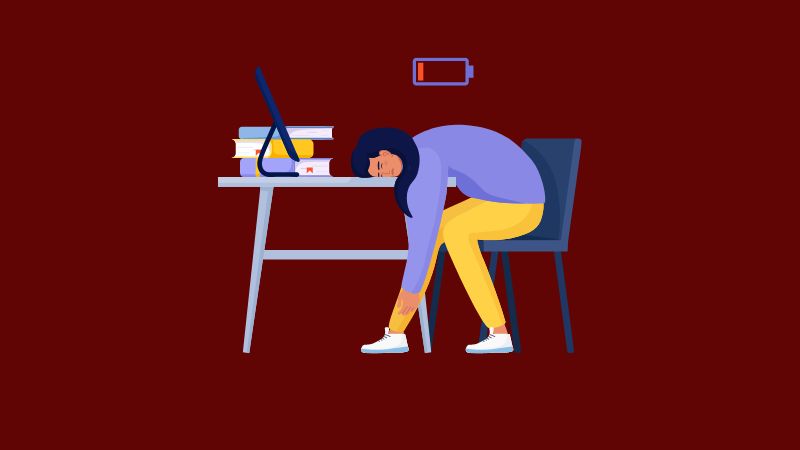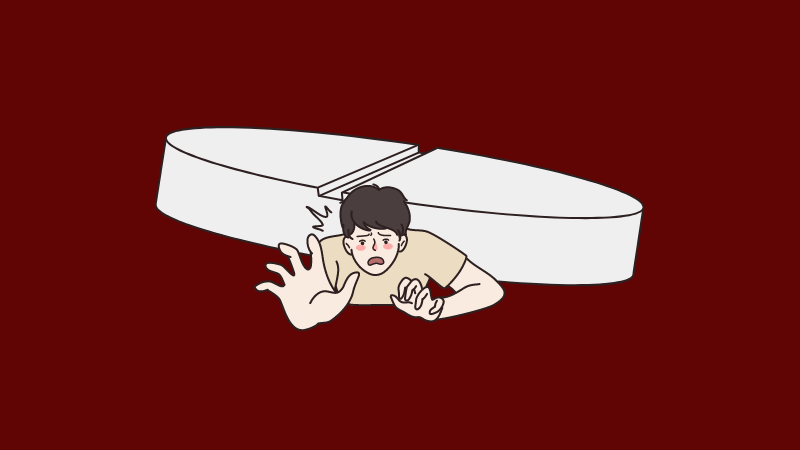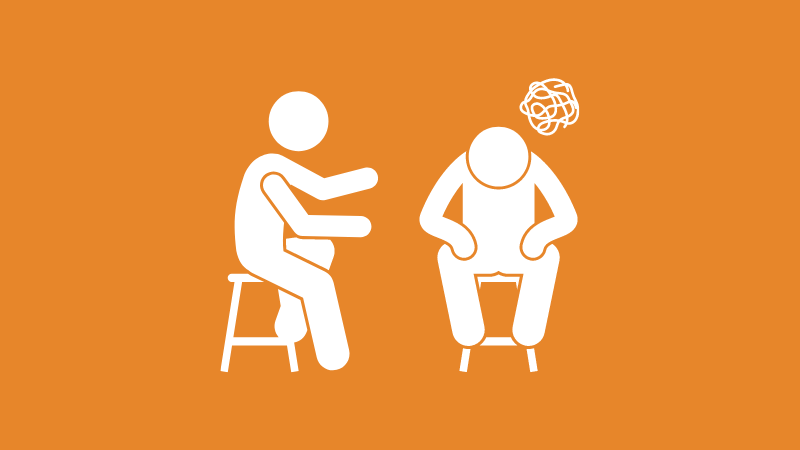Table of Contents
Affiliate link notice: As an affiliate of BetterHelp and other third-party vendors, We will receive compensation if you make a purchase using the links provided on this page. For more information, visit our disclosure page.
Last Updated on December 19, 2021 by Randy Withers, LCMHC
Three years ago, I began working at a Psychiatric Hospital in North Carolina. While I am not new to the field of mental health, I had never worked in a State Hospital or any other type of hospital setting for that matter.
I had worked in community agencies, in the homes of dysfunctional families, in drug treatment centers, and in private practice. Now, I go through seven locked doors to get to my office.
Like anyone, I had some preconceived notions about working at a psychiatric hospital. I predicted constant danger and a siege mentality from the staff. But that’s just not the case. In fact, When I share my experiences, people are surprised to learn that I love it, despite the challenges. Here are 5 things I’d like you to know:

1. It’s Not at All What You Think
State Psychiatric Hospitals have a bad reputation. While they have evolved over the past 150 years, they are still where courts send the so-called worst of the worst. Roughly half of the patients have pending charges for ghastly crimes. Charges of rape, murder, and kidnapping are common.
It’s easy to dismiss some of these people as lost causes. You can read a patient’s chart and think that what they have done is so bad that it’s not worth your time to help them. And I will admit that this is true for a small percentage of the population.
But your attitude changes when you start working at a psychiatric hospital. Most of the patients there were suffering from horrifying developmental and mental disorders when they committed their crimes.
After they get stabilized and on the right medications, it’s often hard to believe that they ever committed crimes in the first place.
Most of my patients are cool. They have goals, dreams, and families. What sets them apart is untreated mental illness, substance use disorders, and trauma. It is easy, by the way, to be successful in life if you don’t have to contend with those things. I have learned from working at a psychiatric hospital not to judge the actions of others.
The hospital is not what you might think, either. It is old and beautiful, orderly, and safe. Sometimes bad things happen. One time a patient committed suicide. Fights happen from time to time. Sometimes I hear shouting.
I work throughout the hospital and never do I walk onto a floor worried that I might be attacked. In fact, what happens most often is that the patients ask you about your day or invite you to play cards.
Most of the patients are grateful for the treatment. Most of the staff are compassionate and dedicated. Don’t believe the silly depictions you see in movies and on TV. Sure, there a few bad apples, but where in life is that not the case?

2. Crime and Mental Illness are Often Related
I have several patients whom you would have no problem inviting into your home. They are intelligent, polite, empathetic, and kind. The disconnect between who they are and the crimes they committed is profound.
In fact, they only make sense if you look at the underlying mental illness.
The more I work with this population, the more I see the degree to which mental illness plays a role in criminality.
I am not suggesting that all or even most mentally ill people commit crimes. That is simply false. But I am saying that many awful crimes are committed by people suffering from a major mental illness.
For example, I work with a woman who shot her neighbor because she thought he was part of a government conspiracy. I work with another who strangled his aunt during a psychotic episode. Psychotic symptoms seem to be characteristic of almost every patient accused of a violent crime here.
Those are egregious examples, but others are far more common. One of my patients did time for grand larceny because he stole a TV to pay for his crack habit. Out of desperation, he swiped money from a register in full view of all the customers and clerks in the store. Does that sound like the actions of a mentally well person?
This is what I mean when I say mental illness is a factor in criminal behavior. Addiction, for example, compromises our ability to use sound judgment and to behave rationally. This guy would never have committed that crime if he was sober. As Rick James once said, “Cocaine is one hell of a drug.”
The solution to problems like these is not to incarcerate the mentally ill, though that’s exactly what we do. Prisons are full of people with mood and psychotic disorders who would never have committed crimes if not for their mental illness. Your tax dollars are hard at work keeping people locked up who should otherwise be receiving treatment.
The country is in dire need of a paradigm shift about criminals and the crimes they commit. Treatment works in most cases and is far less expensive than long-term incarceration. But that’s not how our government operates. I doubt it ever will.
But seriously – where would you rather your tax dollars go?

3. The Mental Health System is Absurd
One of the huge problems though is the disconnect between what “the system” prescribes as treatment and what people actually need. A great example of this is the so-called 28-day Drug and Alcohol Treatment Program.
There is nothing special about 28 days. It’s not like patients are sick on day 27 and cured on day 29. Four weeks is a standardized amount of time that makes sense to insurance companies and Medicaid. It has its roots in the military when service members with drug problems were given four weeks to clean up their act on pain of court-martial and a dishonorable discharge.
It has zero to do with a patient’s needs. It has zero to do with actual recovery.
If treatment was the priority, the length of stay would be determined by medical professionals, not accountants. But we are less concerned with outcomes and more concerned with budgets. These problems cost the United States hundreds of billions of dollars every year. So not only are we focused on the wrong things, but we’re going about them in magnificently stupid ways.
Despite the nonsense, the professional staff does an excellent job. But resources are scarce in the community, so it takes a long time to discharge patients. The hospital where I work is supposed to be for acute need, but many patients languish away for months or years because we have nowhere to send them.
Working at a psychiatric hospital, in this regard, is both rewarding and exasperating.
It costs something like 1,000 dollars a day to treat a patient at a psychiatric hospital. If you have 300 patients, that’s 110 MILLION dollars a year. Wouldn’t it make sense to provide less-expensive treatment options in the community?
4. Family Support is The Number One Predictor of Success
Ultimately, you can’t rely on the government. Psychiatric Hospitals and outpatient treatment centers are only temporary solutions. Even though the services are excellent, it’s all for naught without social support and accountability. And the primary manner in which people find support is through their families.
Support from family and friends is the single biggest predictor of long-term recovery from substance use disorders and mental illness. This is one of the reasons why both Alcoholics and Narcotics Anonymous enjoy so much success with their members. They don’t prescribe medication. They don’t offer therapy. They won’t solve your problems. What they do is offer social support and accountability.
It’s hard to overstate the importance of those things. Working at a psychiatric hospital has really opened my eyes to this truth. The sheer volume of patients we see coming from dysfunctional families is just mind-boggling.
The same basic thing is true with a person’s social support system (i.e., their friends and family). If your family is judgmental and reactionary, recovery may well be impossible. But anything is possible in a home full of love and support. The only problem is, families like that are not the norm in the world in which I live.
The importance of a stable family is especially true with children. Our adolescent unit often sees the same children admitted over and over again. The reason this happens is that they keep being discharged to toxic parents who keep toxic homes. I’m talking about parents who farm their children out to sex traffickers. I’m talking about families with an overt record of physical and sexual abuse. These are not good people.
Family can prop us up, but it can also tear us to pieces. I don’t know of a solution to this problem, but we do need to talk more about the dangers of toxic families. When it comes to the safety of children, no topic should be off-limits.
5. People Can (and Do) Recover
Despite these problems, I witness miracles all the time. When people make the choice to work on their recovery, extraordinary things happen.
Roughly 10% of the patients at psychiatric hospitals will never leave. They are unable to take care of themselves for a number of reasons. But this is not the norm. The norm is recovery. The norm is that people get better. Some of them still face serious legal problems when they discharge, but most get credit for time served.
I chair three 12-Step meetings at the hospital. We also have meetings for SMART Recovery. The patients attend them voluntarily. They read the literature and share their troubles and support one another. When they share, they do so with the intention of helping others. Despite all that, they have been through, many leap at the chance to offer encouragement and support.
It is quite a sight to behold. The experience makes working at a psychiatric hospital so much more rewarding than other positions I have held over the years.
This is what happens when you afford people quality care. Most people respond well to the right medications. Most people develop insight. Most people can change. I see it happen every day. The successes far outnumber the failures. The satisfaction you feel is one of the benefits of working at a psychiatric hospital.
The Benefits of Working at a Psychiatric Hospital
Over the past two years working at a psychiatric hospital I’ve seen the most severe forms of mental illness you can imagine. Profound paranoid ideation. Substance-induced Psychosis. Auditory and visual hallucinations. Compulsive self-harm. I’ve seen teenagers who survived horrific sexual abuse and I’ve seen adults who perpetrated it.
But I’ve also seen people make full recoveries when nobody thought they could. I’ve seen my assumptions challenged. I’ve seen hard work pay off. I’ve seen people make full recoveries when nobody thought they could. I see miracles happen all the time.
It has enriched my career and deepened my love for the field of mental health. While the system is broken, the human spirit remains strong.
A version of this article originally appeared in The Mighty.








